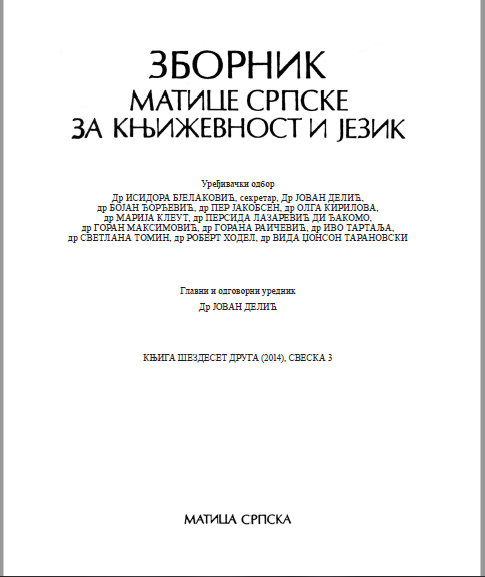АВАНГАРДНА ПОЛИТИКА КЊИЖЕВНОСТИ: БЕНЈАМИНОВО ЧИТАЊЕ БЕРЛИН АЛЕКСАНДЕРПЛАЦА И ЊЕГОВЕ ТЕОРИЈСКЕ КОНСЕКВЕНЦЕ
AVANT-GARDE POLITICS OF LITERATURE: BENJAMIN’S READING OF BERLIN ALEXANDERPLATZ AND ITS THEORETICAL CONSEQUENCES
Author(s): Predrag Ž. PetrovićSubject(s): Comparative Study of Literature, Theory of Literature, Sociology of Art
Published by: Матица српска
Keywords: Walter Benjamin; Bakhtin and Lukacs; Politics of literature;
Summary/Abstract: Although Walter Benjamin did not leave a whole theory of the novel like his contemporaries Lukacs and Bakhtin, his attitudes greatly influenced the ponderings and values in modern art, which was most obvious in Adorno’s aesthetics of modernism and Burger’s theory of avant-garde. In his essay Crisis of the Novel (1930) Benjamin said that Berlin Alexanderplatz (1929) by Alfred Doblin was the first novel in which the procedure of montage of various material became a dominant artistic principle. Benjamin saw the double function of montage. It destroyed the closed composition and style of the novel shaping a dynamic whole open for experiences of social practice. Simultaneously, the montage of documentary material supplies the novel with an important moment on which the epic world rests - authority. The whole that becomes a work of art through the montage of heterogeneous fragments is so problematic and even contradictory that is causes a shock in the recipient demanding his/her active role in the constitution of sense and a need to understand the very phenomenon of art in a new way. In the essay on Nikolai Leskov Benjamin saw the reader as an instance of the solution of tensions that are opened up by new narrative techniques.
Journal: Зборник Матице српске за књижевност и језик
- Issue Year: 62/2014
- Issue No: 3
- Page Range: 727-739
- Page Count: 13
- Language: Serbian

